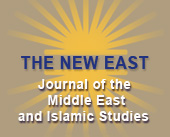The strengthening of political Islam in Algeria and its Sahel region: Al-Qaeda in the Islamic Maghreb as a representative phenomenon
Yehudit Ronen
Since the late 1980s, political Islam has violently penetrated the political and social discourse in Algeria. The aggregation of the failure of Algeria’s leadership to alleviate its population’s economic and social hardships, the exclusion of broad circles of the population from the oil- and gas-rich country’s political activity and economic resources in addition to the exposure of the corruption within the army and political leadership which maintained control of the country under the army’s protection all intensified the crisis with its attendant outrage and popular despair, undermining the strength of the political order. The chronic nature of the crisis, in addition to regional and global influences, created fertile ground for the development of a political-social alternative in the form of political Islam.
The violent struggle waged by the regimes in Algiers to stem the growing tide of political Islam and preserve the state’s political identity escalated into a civil war in the 1990s. This war marked a watershed in the history of independent Algeria. The end of the battles, however, did not spell the end of the confrontation between the state and political Islam which joined the community of global Jihad and designated itself Al-Qaeda in the Islamic Maghreb (AQIM). The change in name was accompanied by the move of its base of action to the African Sahel region, beyond Algeria’s borders. AQIM’s determination to undermine the state order in Algeria and establish a new political-religious order on its ruins, along with the growing strength of the Islamist-jihadi forces in Algeria’s Sahelian area, shifted the heart of the struggle to the Sahel region.
This article will explore the strengthening and radicalization of political Islam in Algeria and analyze both the internal and external factors that gave rise to the bloody conflict as well as the Middle Eastern and international geo-political, economic and religious factors that sustained it. The discussion, which delves into the roots of this violent struggle, encompasses the period from Algeria’s declaration of independence in 1962 up until 2012, including the "Arab Spring" rebellion that erupted in late 2010 in nearby Tunisia and spread to Libya, spilling over with great intensity into Mali – Algeria’s two neighbors in the Maghreb and Sahel, respectively. The discussion of the threat that AQIM poses to the state order in Algeria and the Sahel as well as the challenges of addressing them represent a major part of the article.

